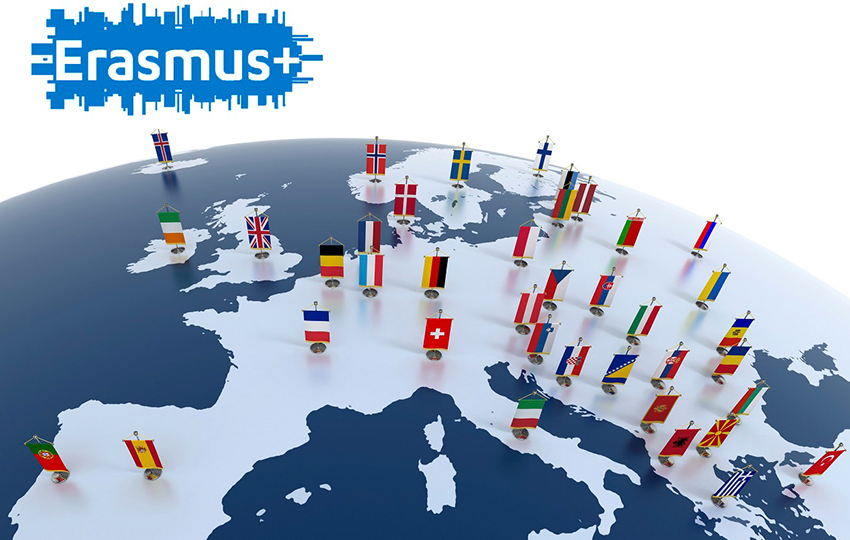One of Europe’s groundbreaking programmes is the Erasmus Plus European Framework. A programme dedicated to education, youth, sports and, above all , training. It runs for seven years, from 2014 to 2020. Many organization can apply for an Erasmus+ funding and implement their activities.
What’s the Idea behind This Funding Programme
The idea behind Erasmus+ project is to modernize education across Europe. Education can help reduce unemployment rates, and it is a priority for the European Union.
As a result, more and more people seem to have an interest in becoming EU partners. If you have an interest in getting European funding to implement your proposed project then you need to make sure you are eligible to be an EU Partner.
Who’s Eligible for Applying to Erasmus+ Programme
The Erasmus+ programme might be open to many individuals as well as organizations but, the eligibility criteria vary. That depends on the action, the country submitting the proposal and so on.
You can, as an individual take part in an Erasmus+ project. Europe’s guides are perfect in providing you with the project Erasmus plus guidebooks with all the information you need. If, however, you find the European guidebooks complicated, you can always do your own research.
Finding the eligibility criteria is not difficult. And in this post we will attempt to list all the eligibility criteria that allow you to apply for an Erasmus+ funding.
Eligibility Based on Country of Origin
Starting with the most important criterion. The country of origin of your organization. The general rule is that organizations from the Programme Countries are eligible to take part in all the Erasmus+ actions. These countries include all the Member States of the European Union as well as the following non EU Countries:
- Former Yugoslav Republic of Macedonia
- Iceland
- Liechtenstein
- Norway
- Turkey
These countries can take part in all the actions under the Erasmus+ Programme. Now we move one to partner countries that can only take part in certain Actions of the programme Erasmus plus. These countries include:
WESTERN BALKANS (Region 1) :
- Albania
- Bosnia and Herzegovina
- Kosovo
- Montenegro
- Serbia
EASTERN PARTNERSHIP COUNTRIES (Region 2):
- Armenia
- Azerbaijan
- Belarus
- Georgia
- Moldova
- Territory of Ukraine as recognized by International Law
SOUTH-MEDITERRANEAN COUNTRIES (Region 3):
- Algeria
- Egypt
- Israel
- Jordan
- Lebanon
- Libya
- Morocco
- Palestine
- Syria
- Tunisia
RUSSIAN FEDERATION (Region 4):
Territory of Russia as recognized by International Law
On a wider geographical scope, there are partner countries that are eligible to take part in some Actions of the Programme. These countries are:
REGION 5
- Andorra
- Monaco
- San Marino
- Vatican City State
ASIA (Region 6):
Bangladesh
Bhutan
Cambodia
China
DPR Korea
India
Laos
Malaysia
Maldives
Mongolia
Myanmar
Nepal
Philippines
Sri Lanka
Thailand
Vietnam
CENTRAL ASIA( Region 7)
- Kazakhstan
- Kyrgyzstan
- Tajikistan
- Turkmenistan
- Uzbekistan
LATIN AMERICA (Region 8)
REGION 9
- Iran
- Iraq
- Yemen
REGION 10
- South Africa
ACP( Region 11)
Antigua and Barbuda
Bahamas
Barbados
Belize
Benin
Botswana
Burkina Faso
Burundi
Cameroon
Cape Verde
Central African Republic
Chad
Comoros
Congo
Democratic Republic of the Congo
Cook Islands
Djibouti
Dominica
Senegal
Dominican Republic
Equatorial Guinea
Eritrea
Ethiopia
Fiji
Gabon
Ghana
Grenada
Guinea
Guinea-Bissau
Guyana
Haiti
Republic of Côte d’Ivoire
Jamaica
Kenya
Kiribati
Lesotho
Liberia
Madagascar
Democratic Republic of
Malawi
Mali
Marshall Islands
Mauritania
Mauritius
Federated States of Micronesia
Mozambique
Namibia
Nauru
Niger
Nigeria
Niue
Papua New Guinea
Rwanda
Saint Kitts And Nevis
Saint Lucia
Saint Vincent And The Grenadines
Samoa
Sao Tome and Principe
Sierra Leone
Solomon Islands
Somalia
South Sudan
Sudan
Suriname
Swaziland
Seychelles
Timor Leste
Tanzania
Togo
Tonga
Trinidad and Tobago
Tuvalu
Uganda
Vanuatu
Zambia
Zimbabwe
How do I Choose the Right Action to Participate In?
Now, even if you do qualify for an action, you always need to ask a very important question. Which action? It is never a good idea to jump into a proposal. You need to be certain that you will be able to deliver your part of the project in the action. That is the best way to start building a good reputation as an EU Partner.
- For projects relevant to the field of higher education, the main targets are: higher education students (short cycle, first, second or third cycle), higher education teachers and professors, staff of higher education institutions, trainers and professionals in enterprises;
- For projects relevant to the field of vocational education and training, the main targets are apprentices and students in vocational education, professionals and trainers in vocational training, staff of initial vocational education organizations, trainers and professionals in enterprises;
- For projects relevant to the field of school education, the main targets are: school leaders, school teachers, and school staff, pupils in pre-primary, primary and secondary education;
- For projects relevant to the field of adult education, the main targets are members of non-vocational adult education organizations, trainers, staff and learners in non-vocational adult education;
- For projects relevant to the youth field the main targets are young people from 13 to 307, youth workers, staff and members of organizations active in the youth field;
- For projects relevant to the field of sport, the main targets are professionals and volunteers in the field of sport, athletes, and coaches.
The project, published by the European Union is your best source for information on EU Projects. As an aspiring partner, you need to learn how to separate different projects and different partners. It is your responsibility to choose the right actions and build your organization’s reputation. That way you will be able to secure a much brighter future as an EU partner!

